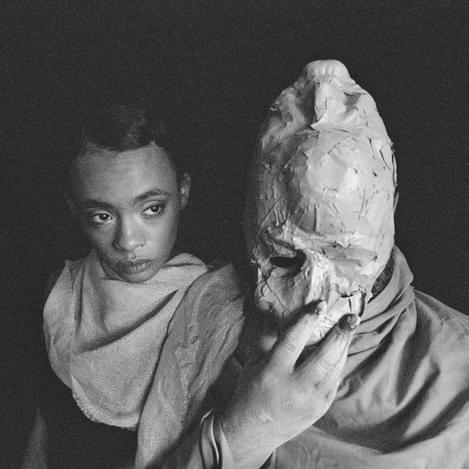Protomartyr firmly establish themselves as some of Detroit’s finest with Formal Growth In The Desert
"Formal Growth In The Desert"

After 2017’s relatively accessible Relatives in Descent, Detroit post-punk deities Protomartyr were in a golden position.
They had the option of following in the footsteps of The National by taking their newfound tunefulness as a blessing and morphing into MOR sad bastards beloved by pop stars and playlist makers the world over. Thank the Lord they opted not to.
Since their 2012 debut album No Passion All Technique, Protomartyr have walked a singular path through their own desert, gradually buffing out much of the roughness but adding an enviable amount of finesse - but never to the extent that they don’t sound exactly like themselves. Where they blended punk and garage rock on their first album, and even hinted at emo on their second, they’ve never fully indulged in much of a change from their original form. They’ve never really needed to.
In case you’re new, Protomartyr are a foursome consisting of vocalist Joe Casey, guitarist Greg Ahee, drummer Alex Leonard, bassist Scott Davidson, and they’ve now become so synonymous with a caustic and impressionistic mixture of politically minded punk and poetic noise rock - influencing a whole raft of great bands along the way - that it’s almost impossible for people who’ve been keeping up to see them doing anything else.
Though Formal Growth In The Desert was recorded at Sonic Ranch in Tornillo, Texas, it’s certainly not a traditional desert album. You’ll see that Casey has been doing the rounds and telling every interviewer that it’s not about the desert.
So while Casey's introspection amidst the Sonoran Desert rock formations (a rather Christ-like endeavour) influenced the tone of some of the lyrics, the desert itself serves as a metaphor or symbol for what he finds so captivating about Detroit. The desert represents emotional emptiness, a place or time that seems devoid of life - but the sounds the band make around him suggest the complete opposite. The band definitely think this is their desert album, and go about using pedal steel, Ennio Morricone influences and widescreen sonics to prove it.
Album opener “Make Way” lurches like a drunken cowboy stumbling out of a tavern of ill repute (complete with that noticeable Ennio Morricone guitar influence) before indulging in an eyebrow-raising glam rock stomp towards its end.
“For Tomorrow” is a more conventional full-bodied rocker in the classic Protomartyr mould. The drums thunder and burst in clusters, Casey drawls and yowls while the guitars scrape and burn around him.
Even when they tease a move in a completely new direction, as on the skeletal “Fun in Hi School”, they still retain these wonderful elements. Casey turns in a particular hoarse vocal here too, which is especially powerful as he casts a scornful eye over the toxicity of nostalgia.
“Elimination Dances”, which the band wisely released as a single before the album drop, is simply one of the best things they’ve ever done. They paint a rubbery, muscular rhythm with a fiercely expressive vocal performance and a fiery guitar break until it’s just right. The video is wonderful too.
“Let’s Tip the Creator” and “Graft vs. Host” are both built on creative and expressive Alex Leonard beats but pull in different directions. The former is led by a haunted guitar while the latter is dominated by an oppressive, ghostly emptiness.
Album highlight “3800 Tigers”, which was previewed on their 2022 run of performances here in the UK, takes aim at both Man’s destructive tendencies and our seemingly endless need for tribalism and division (it serves as a partial ode to his favourite baseball team, the Detroit Tigers).
When Casey starts rapping (!) along to a motorik beat on “Polacrilex Kid”, it feels as though the world has gone mad. His ultra-modern monosyllabic cadence is both hilarious and inspiring.
The album ends with “Rain Garden”, which is simultaneously the most beautiful and emotionally open thing they’ve ever put to tape. It’s easy to speculate that its tenderness is somehow intrinsically linked to the passing of Casey’s mother (a recent and tragic event), but that seems simplistic. It’s a powerful, powerful song. In the press kit, Casey reflected on the decision to end the album this way, writing that “there’s a lot of love in this album, which is something that doesn’t really exist in Protomartyr before. I didn’t want to start the album with love, because you have to earn it.”
In an era often dominated by commercial pap and formulaic club bangers, Protomartyr's unapologetic authenticity and refusal to compromise have established them as a vital force. As they continue to challenge conventions and push boundaries, while still being utterly and completely themselves, Protomartyr stand tall as a testament to the enduring spirit of innovation that defines Detroit's rich musical history.
Get the Best Fit take on the week in music direct to your inbox every Friday

Prima Queen
The Prize

Femi Kuti
Journey Through Life

Sunflower Bean
Mortal Primetime





